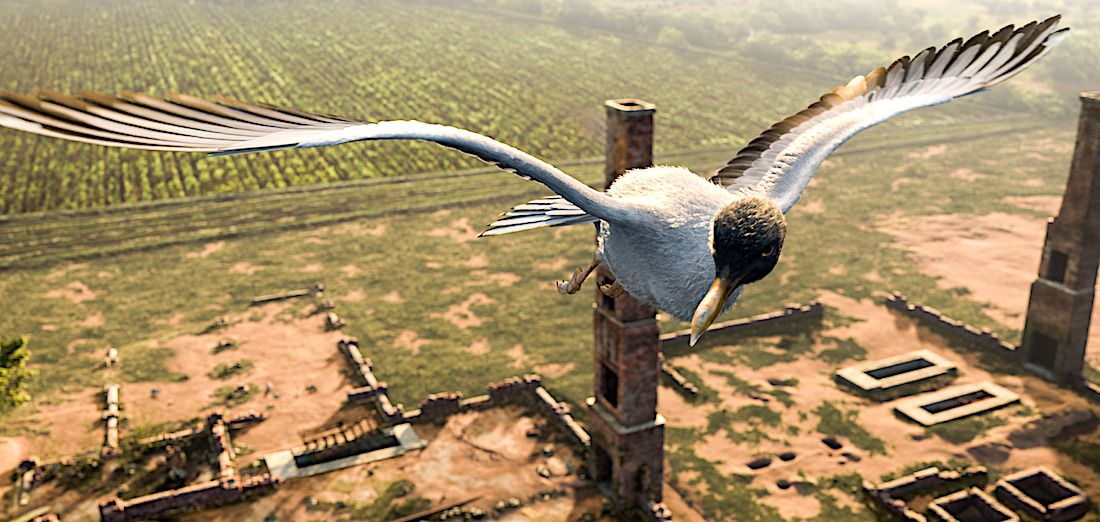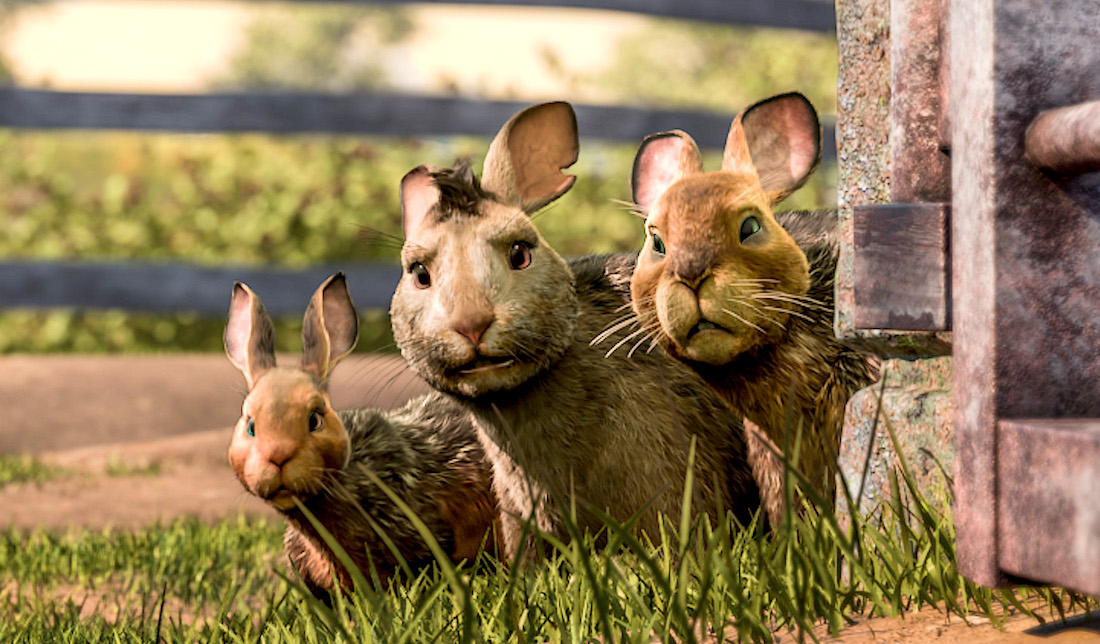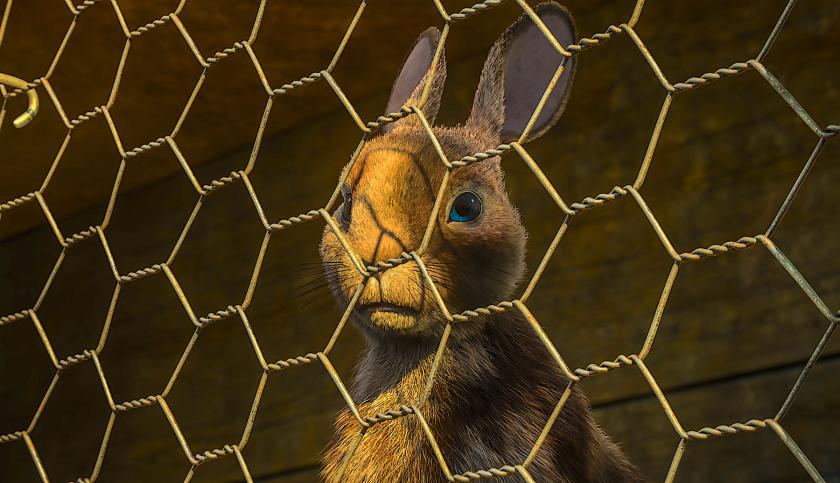The author of the original Watership Down novel, Richard Adams, used to insist that it was “just a story about rabbits”, but its eco-friendly theme and warnings about the destruction of the natural environment were impossible to miss. In the 46 years since Adams wrote it, these concerns have become vastly more pressing, and his depiction of displaced rabbits wandering the earth in search of a new home could hardly be more topical. Thus, this new BBC/Netflix adaptation is aptly timed.
The 1978 film version, voiced by the likes of John Hurt, Richard Briers and Ralph Richardson, was a giant hit at the UK box office, but inevitably looks rather primitive compared to this sleek new incarnation (though was it really a good idea to replace Art Garfunkel’s theme tune, “Bright Eyes”, with Sam Smith’s overwrought “Fire on Fire”?) Now, landscapes are rendered with meticulous precision, complete with insects crawling up individual blades of grass. Whereas the 1978 rabbits were just blotches of colour, the new ones are so lifelike you could almost believe they’re real rabbits who’ve been putting in the hard yards at acting school. The breeze ruffles their fur, you can see every twitch of every whisker, and their faces are mobile enough to register a range of expressions. Their bouncing walk, propelled by long back legs, is unmistakeably leporine.
 So far so good. On the other hand, Adams’s mythological back-story for his rabbit world, which was created by the god Frith and includes an origin story featuring the prince rabbit El-Ahrairah, feels somewhat laboured (though perhaps not if you’re a devotee of the book). Likewise, the fragments of an esoteric language spoken by the rabbits – a vaguely Arabic-sounding creation called Lapine – doesn’t seem to belong in a world of furry, floppy-eared bunnies.
So far so good. On the other hand, Adams’s mythological back-story for his rabbit world, which was created by the god Frith and includes an origin story featuring the prince rabbit El-Ahrairah, feels somewhat laboured (though perhaps not if you’re a devotee of the book). Likewise, the fragments of an esoteric language spoken by the rabbits – a vaguely Arabic-sounding creation called Lapine – doesn’t seem to belong in a world of furry, floppy-eared bunnies.
Luckily, most of the time they speak English, which is delivered through a sprawling cast of top-of-the-line thesps. Nicholas Hoult is the voice of Fiver, the seer-rabbit whose premonition of chaos and destruction (actually, a property developer's bulldozers) prompts a group of them to leave their home in Sandleford Warren in search of a promised land. James McAvoy is Fiver’s brother Hazel who becomes their de facto leader, while Daniel Kaluuya plays Bluebell and Miles Jupp is Blackberry.
Some of the voices sound too similar though, and despite the minute detailing of the rabbits they’re not always easy to identify, so there’s sometimes confusion about who’s saying what to whom. It’s a relief to have John Boyega lending a touch of thuggery as Bigwig and Peter Capaldi putting in a splenetic and very Scottish turn as the bolshy seagull Kehaar (pictured above). Olivia Colman brings mildly hysterical chirpiness to Strawberry, a lonely she-rabbit who invites the wanderers to join her at the Great Burrow. At first it looks like a perfect refuge, until Fiver’s sixth sense detects that “this place is death” (pictured below, Fiver, Bigwig and Hazel).
 Though the goriness found in the 1978 film has been toned down, this is still a story full of dark undertones. It takes a very dim view of humans – “All I know is where there are humans, there is death,” says Captain Holly (Freddie Fox), while Clover (Gemma Arterton) goes further. “There’s a terrible evil in the world and it comes from men… men will never rest until they’ve spoiled the earth and destroyed the animals.”
Though the goriness found in the 1978 film has been toned down, this is still a story full of dark undertones. It takes a very dim view of humans – “All I know is where there are humans, there is death,” says Captain Holly (Freddie Fox), while Clover (Gemma Arterton) goes further. “There’s a terrible evil in the world and it comes from men… men will never rest until they’ve spoiled the earth and destroyed the animals.”
But it also allows for conflicting behaviour and attitudes within the animal world, including the ginger farm cat with gleaming green eyes who fancies a fresh rabbit supper. Scenes where some of the rabbits are captured and incarcerated at General Woundwort’s Efrafa warren beneath some disused brick stacks, where they’re guarded by sadistic SS-style rabbit warders and branded by a hideous creature with a long dagger-like claw, no doubt carry echoes of Adams’s World War Two experiences, and send a distinct chill up the spine. The rabbit exodus has a thorny obstacle course to overcome before it can settle in the yearned-for nirvana of Watership Down.















Add comment